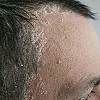What’s the latest advice regarding diet and probiotics for irritable bowel syndrome?
Answered by: Howard LeWine, M.D.
Question
What's the latest advice regarding diet and probiotics for irritable bowel syndrome?
Answer
We don't know the exact cause of irritable bowel syndrome (IBS). But we do know the most common triggers:
- Certain foods
- Caffeine
- Stress
- Carbonated drinks
- Artificial sugars
- Intestinal infectious that cause diarrhea
The more flare-ups of IBS episodes you have, the more sensitive your gut becomes to triggers.
First, try to identify which foods seem to cause your symptoms. It's not the same for everyone.
A good way to start is to eliminate foods with poorly digested sugars and fibers known as FODMAPs. It's shorthand for a technical term referring to molecular structure.
The most common food sources of FODMAPs are wheat, rye, onions, garlic, legumes, dairy products, honey, apples, watermelons, peaches, apricots, blackberries, high-fructose corn syrup, and artificial sweeteners.
These molecules are digested by gut bacteria, which produce gas and bloating. It's worth it to reduce these foods to see if your symptoms improve.
Also diets low in FODMAPs are usually low in gluten. Gluten free diets have become popular in people with IBS. FODMAPs may be the reason why reducing dietary gluten sometimes helps relieve IBS symptoms. Gluten is a protein found in some whole grains such as barley, rye, and wheat.
It's reasonable to consider a probiotic. Probiotics are colonies of good bacteria that are typically freeze-dried. You can find them in most drug stores and supermarkets. They come as capsules or tablets to swallow and loose powder to sprinkle on food. Be sure to check the shelf life, not just the date it was made.
More studies are underway to help determine what types of bacteria in a probiotic work best. Some evidence suggests that one called Bifidobacterium might be more effective at relieving the symptoms of IBS.
Disclaimer:
As a service to our readers, Harvard Health Publishing provides access to our library of archived content. Please note the date of last review or update on all articles.
No content on this site, regardless of date, should ever be used as a substitute for direct medical advice from your doctor or other qualified clinician.












